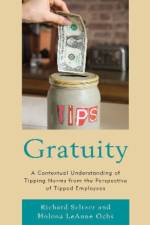av Richard Seltzer
285,-
Because of Covid, Debbie Dawkins has been unable to stage high school plays. This summer she wants to do Shakespeare on the Beach, starting with Romeo and Juliet. No one answers the casting call, until a stranger, Liam, shows up and recites the entire play.He has no idea how he did that. She, by chance, quotes a line from Hamlet, and he starts reciting that play as well. Alarmed. she drives him to the emergency room of a local hospital. There's nothing medically wrong; but she feels responsible for having triggered this Shakespeare mania in him, and she is also beginning to realize that his uncanny ability might open opportunities.Her mother, a psychotherapist, charmed by Liam, thinks he has a rare gift, not a psychosis. There is no barrier to staging public performances, she reassures Deb.He does Julius Caesar, and the audience is entranced. Then he does Macbeth. He needs no rehearsal. A line from the play is enough to send him into his trance. Even fireworks set off by troublemakers do not distract him.They decide to do a different play every day for the rest of the summer. No one understands how he does it. Everyone enjoys it.Reporters learn that all it takes is one line to trigger Liam into reciting an entire play. At the next performance, people in the audience shout lines from many different plays and Liam recites now this one, now that one. The show becomes a farce.Next time, Liam wears noise-reducing headphones to foil hecklers. People in the audience stream his performance from their cellphones to the Web, making it a global event. Its huge success dooms the project. The town shuts them down when a hundred thousand people swarm to Eastport, disrupting traffic and causing random damage.A hundred thousand people swarm to Eastport, disrupting traffic and causing random damage, The town shuts them down. Their fifteen minutes of fame are over.Professor Jaspers, a Shakespeare expert at Yale, becomes interested in Liam and tests him with a few lines from Cardenio, a lost Shakespeare play. Liam recites the whole thing. The professor is astounded. He believes that what he just heard is the play itself. He has Liam do it again and captures it on video and has it transcribed. He wants to make it public but knows that its bizarre provenance would undermine its credibility. He decides to present it as a scholarly work of reconstruction.But a reporter tricks Liam into reciting Cardenio, uncovering the ruse. Instead of a lost masterpiece or a brilliant reconstruction, it appears to be an elaborate hoax.To save face, Jaspers has Liam perform Cardenio at the Yale Bowl, streamed globally and put into the public domain. He provides no explanation. The focus is on the work's literary merit, not how it came to be.In the media storm that follows, Liam-as-Shakespeare becomes a second Elvis, with numerous reported sightings and wild rumors explaining his capabilities and his sudden disappearance.Liam, who felt dehumanized by this mechanical process that took over his mind, comes up with a gadget that allows him to live a normal life. Years later, he starts reciting what sounds like another Shakespeare play, this one about Saint George. Caught by surprise, Deb doesn't record it, and Liam refuses to do it again.Later still, Liam realizes that he no longer needs a special device to think and act normally. But now he regrets the loss. Saint George is somewhere in his mind. He would like to release it to the world. To recover his ability and to remember this play he needs a moment of heightened awareness and anxiety. They schedule a public performance at the Yale Bowl on Shakespeare's birthday, April 23, which is also Saint George's Day.











